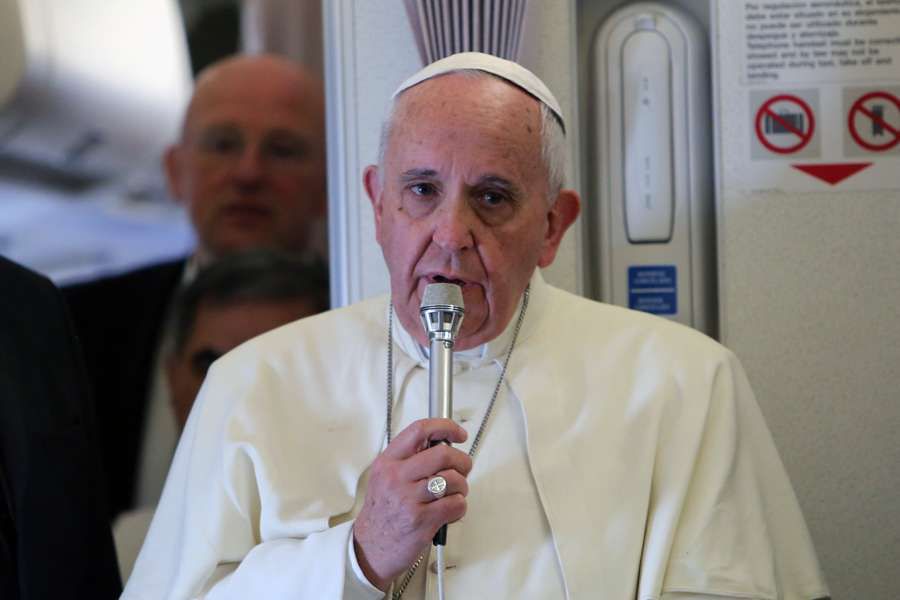During a press conference Sunday aboard the papal plane from Colombia to Rome, Pope Francis said that though he is not familiar with how the decision to end DACA was made, he hopes it will be reconsidered as part of a pro-life ethic which defends the unity of families.
“I hope that it will be rethought a little, because I have heard the President of the United States speak as a pro-life man. If he is a good pro-life man, he understands that the family is the cradle of life, and unity must be defended. This is what comes to me,” Francis said Sept. 10. “I have heard of this law. I have not been able to read the articles, how the decision was made. I don't know it well,” he stated. “Keeping young people away from the family is not something that brings good fruit.”
Asked if he thought that ending DACA will cause youth who benefitted under the program to lose their joy and hope in the future, he said that when youth feel exploited, whether in this case or others, they are robbed of hope. Dependency on drugs and other substances, as well as suicide, also provoke hopelessness, he said, which happens when youth are disconnected from their roots. “Uprooted young people today ask for help, and this is why I insist so much on dialogue between the elderly and the youth. That they talk to their parents, but (also) the elderly,” he said.
The Pope spoke aboard the papal plane Sunday evening on the return flight from Colombia. He made an apostolic visit to the country Sept. 6-11 to promote peace and reconciliation in the country, which has suffered from violence and a decades-long civil war.
In the 40-minute long conference, the Pope also spoke about the crisis in Venezuela, corruption, climate change and whether Colombia could provide a model for the peace process for other countries.
The Trump administration announced Sept. 5 that it would be taking steps to end the Deferred Action for Childhood Arrivals program, commonly known as DACA, which has benefited hundreds of thousands of undocumented immigrants who entered the U.S. as minors. Under the program, eligible immigrants who were brought to the U.S. illegally as minors by their parents could receive a two-year stay on their deportation. In that time period, they could be eligible for work permits and Social Security.
The program was announced in 2012 by President Obama and implemented by the Department of Homeland Security, in the memorandum “Exercising Prosecutorial Discretion with Respect to Individuals Who Came to the United States as Children.”
Congress had several times tried and failed to pass the Development, Relief, and Education for Alien Minors Act, or a version of it, that would help young immigrants who came to the U.S. illegally before the age of 16 to lawfully remain in the U.S. and even have a path to citizenship. The most recent version has been introduced this year by Sens. Dick Durbin (D-Ill.) and Lindsey Graham (R-S.C.) and would grant permanent legal status to more than 1 million eligible persons.
DACA was expanded to include eligible parents who brought their children illegally to the U.S. in a program called “Deferred Action for Parents of Americans and Lawful Permanent Residents.” In 2016, the Supreme Court upheld a halt on that program going into effect, and U.S. Secretary of State Jeff Sessions warned Tuesday that DACA could get struck down in court.
The Trump administration said it would end DACA by phasing it out. Sessions said that it was an “unconstitutional” overreach of executive power, especially since Congress refused several times to grant such benefits to undocumented immigrants. However, the decision has been met with harsh criticism, including from U.S. bishops, who said ending the program was a “national tragedy” for all parties and argued that it is unfair to deport young people who did not make the choice to come to the U.S., but who nevertheless have contributed to the country by holding down jobs, going to college and even serving in the nation's armed forces.

